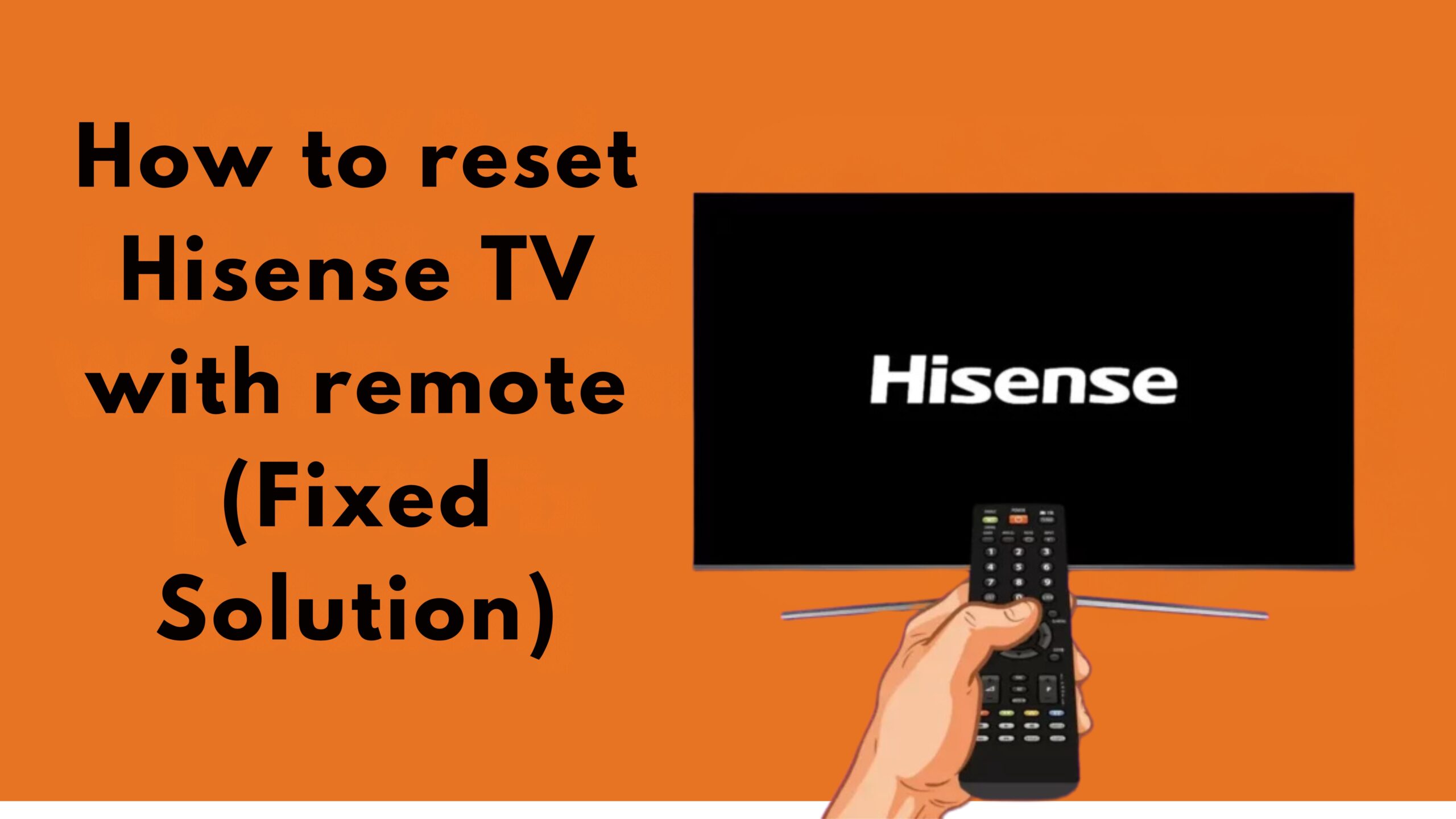Navigating the world of television technology can often feel overwhelming.
With various brands, each offering unique features, it’s easy to get lost in the myriad of settings and options available.
Hisense is a brand known for its affordability and quality. Has been gaining traction in the market, but many users struggle to optimize their viewing experience.
This article is designed to guide you through the intricacies of Hisense TV settings.
Ensuring that you not only understand what each option does but also how to customize your TV for the best possible experience.
![Hisense TV Settings [Complete Guide]](https://4ucartoon.one/wp-content/uploads/2024/10/Hisense-TV-Settings-Complete-Guide-300x169.jpg)
Understanding Your Hisense TV
Before diving into the settings, it’s essential to grasp what makes Hisense TVs unique.
They come equipped with various technologies, including 4K resolution, HDR (High Dynamic Range), and smart capabilities that allow you to access streaming services directly.
However, with such advanced features comes a plethora of settings that can be daunting for new users.
Personal Anecdote: My Journey with Hisense TV
When I first bought my Hisense TV, I was excited about the 4K picture quality and built-in streaming apps.
However, after setting it up, I was disheartened by the dull colors and lackluster sound.
It took me several hours of research and experimentation to find the perfect settings that transformed my viewing experience. What I learned during that process is what I hope to share with you today.
Key Settings to Optimize Your Hisense TV
Picture Settings
Brightness and Contrast
Cause of Poor Picture Quality:
Many users often report that their images appear either too dark or washed out. This issue typically arises from incorrect brightness and contrast settings.
Fix: Navigate to Settings > Picture > Brightness and Contrast. Start by adjusting brightness to around 50%. In contrast, a value between 80-90% usually works well.
Play with these settings according to your room’s lighting.
Color Settings
Cause of Oversaturation:
Sometimes, colors may appear overly vibrant or flat, leading to an unnatural viewing experience.
Fix: In the Picture Settings, find the Color option. Set it to around 50%. Additionally, explore the Color Temperature settings; “Warm” often provides the best skin tones.
Sharpness
Cause of Pixelation:
Excessive sharpness can lead to pixelation, making your favorite shows look artificial.
Fix:
Lower the sharpness setting to around 10-20%. This range generally enhances detail without creating harsh edges.
Picture Mode
Cause of Inconsistent Quality:
Different content types may require different settings for optimal viewing.
Fix:
Explore the Picture Mode options. “Movie” or “Cinema” modes are usually best for films, while “Standard” is suitable for daytime viewing.
Audio Settings
Sound Mode
Cause of Dull Sound: The default sound settings may not suit your listening environment or preferences.
Fix: Go to Settings > Sound and choose a mode like “Movie” or “Music” based on what you’re watching. Adjust the Treble and Bass settings according to your preference—usually, a little boost in bass enhances cinematic experiences.
Surround Sound
Cause of Limited Audio Experience:
Without proper sound adjustments, the audio can feel flat.
Fix:
If your TV supports it, enable the Surround Sound feature. You can usually find this under the Sound Effects settings.
Smart Features
Network Connection
Cause of Streaming Issues:
A poor internet connection can lead to buffering and low-quality streaming.
Fix:
Ensure your TV is connected to a strong Wi-Fi signal. Go to Settings > Network and run a speed test. Consider moving your router closer or using a wired connection if your connection is weak.
![Hisense TV Settings [Complete Guide]](https://4ucartoon.one/wp-content/uploads/2024/10/Jeep-Grand-Cherokee-Key-Fob-Not-Detected-Causes-Solution-1-1-e1731933313225-133x300.png)
Hisense TV problems with pictures (Causes & Solution)
Updating Firmware
Cause of Bugs and Performance Issues: Outdated software can lead to glitches and compatibility problems with apps.
Fix:
Go to Settings > About > System Update.
Check for updates and install them as needed. This step ensures you have the latest features and security enhancements.
Customization Options
User Profiles
Cause of Mixed Preferences:
In households with multiple users, differing preferences can make it challenging to enjoy shared viewing.
Fix:
Many Hisense models allow you to create user profiles. Customize the picture and audio settings for each profile to match personal preferences.
Parental Controls
Cause of Inappropriate Content Access: Parents may worry about children accessing unsuitable content.
Fix:
Navigate to Settings > Parental Control. Set up a PIN and restrict access to certain apps or content ratings to keep the viewing experience family-friendly.
Troubleshooting Common Issues
Screen Flickering
Cause: This can be caused by loose connections or issues with the HDMI cable.
Fix:
Check all cable connections, especially HDMI cables. Try using a different port or replacing the HDMI cable to see if the flickering resolves.
Remote Control Not Responding
Cause:
Batteries may be dead, or there could be interference from other devices.
Fix:
Replace the batteries in the remote. Ensure there are no obstructions between the remote and the TV. If problems persist, try using the TV’s built-in buttons to troubleshoot further.
Apps Not Loading
Cause:
This could be due to a poor internet connection or app glitches.
Fix:
Restart the TV and check your network connection.
If the problem persists, consider uninstalling and reinstalling the problematic app.
Frequently Asked Questions (FAQs)
How do I access the settings on my Hisense TV?
To access settings, press the Settings button on your remote control. From there, you can navigate through the various options such as Picture, Sound, Network, and more.
What picture mode should I use for gaming?
For gaming, select the Game Mode in your picture settings. This mode minimizes input lag, providing a smoother gaming experience.
Can I connect external speakers to my Hisense TV?
Yes, you can connect external speakers via Bluetooth or through the HDMI ARC (Audio Return Channel) port. Go to Settings > Sound to configure your audio output preferences.
How do I reset my Hisense TV to factory settings?
To reset your Hisense TV, go to Settings > About > Factory Reset. Follow the prompts to restore the TV to its original settings.
What should I do if my Hisense TV keeps turning off?
If your TV keeps turning off, it might be due to a power issue or a software glitch.
Check the power connection, try a different outlet, and consider performing a software update.
Conclusion
Optimizing your Hisense TV settings can drastically enhance your viewing experience.
From adjusting picture and sound quality to troubleshooting common issues, understanding these elements can transform your television into a hub of entertainment tailored to your preferences.
As someone who has navigated these settings myself. I can attest to the joy of finally achieving that perfect picture and sound combination.
Take the time to explore these settings, and you’ll find a world of entertainment at your fingertips.

![Hisense TV Settings [Complete Guide]](https://4ucartoon.one/wp-content/uploads/2024/10/Hisense-TV-Settings-Complete-Guide-scaled.jpg)

![How do I stop my TV from turning off automatically [Fixed]](https://4ucartoon.one/wp-content/uploads/2024/10/How-do-I-stop-my-TV-from-turning-off-automatically-Fixed-scaled.jpg)
![where is power button on samsung tv [Fixed]](https://4ucartoon.one/wp-content/uploads/2024/10/where-is-power-button-on-samsung-tv-Fixed-1-scaled.jpg)